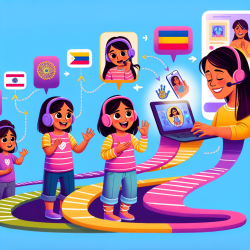As practitioners, our goal is to create the best outcomes for the children we serve. Understanding the unique narrative challenges faced by teenagers with Developmental Language Disorder (DLD) and High Functioning Autism (HFA) can significantly enhance our therapeutic strategies. A recent study published in Frontiers in Psychology sheds light on these challenges, offering data-driven insights that can inform our practice.
Key Findings from the Study
The study analyzed the narrative skills of three groups of teenagers: those with DLD, those with HFA, and typically developing (TD) peers. Participants were asked to recount a personal experience, and their narratives were evaluated for coherence, cohesion, and social-cognitive skills.
Coherence
Coherence refers to how well a narrative follows a logical structure. The study found that teenagers with DLD struggled significantly with the "complication" step of the narrative schema. This step involves detailing the reaction, goal, and attempts to resolve a problem, which requires complex linguistic skills.
In contrast, teenagers with HFA did not exhibit significant difficulties with narrative coherence. Their narratives were comparable to those of their TD peers, suggesting that their challenges lie more in the social-cognitive domain.
Cohesion
Cohesion involves the use of linguistic tools like anaphors and connectors to link statements within a narrative. Interestingly, the study found no significant differences in cohesion between the three groups. This indicates that both DLD and HFA teenagers can use these linguistic tools effectively when recounting personal experiences.
Social-Cognitive Skills
Social-cognitive skills are crucial for ensuring the quality of interactions in narratives. The study found that teenagers with HFA did not have significant difficulties in this area, contrary to previous research. Only a few HFA participants produced arbitrary vocalizations, which could hinder communication.
Implications for Practice
Understanding these findings can help practitioners tailor their interventions more effectively:
- Focus on Coherence for DLD: Emphasize activities that help DLD teenagers practice structuring their narratives, particularly the complication step.
- Monitor Social-Cognitive Skills for HFA: Although the study found minimal difficulties, it’s still essential to be vigilant and provide support where needed.
- Use Personal Narratives: Encourage the use of personal experience narratives in therapy to help teenagers with both DLD and HFA apply their linguistic skills in a meaningful context.
By integrating these insights into our therapeutic practices, we can better support the narrative development of teenagers with DLD and HFA, ultimately enhancing their communication skills and social interactions.
To read the original research paper, please follow this link: Focus on the Narrative Skills of Teenagers With Developmental Language Disorder and High Functioning Autism.










